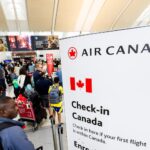When Marianne Drost purchased tickets for Barry Manilow’s farewell tour in Toronto, the longtime superfan never imagined she might miss the performance entirely. Despite requesting accessible seating due to her mobility issues, Drost arrived at the venue to discover her seats were located up a flight of stairs—an insurmountable barrier for someone who uses a walker.
“I was devastated,” Drost told CO24 News. “I’ve waited years to see him perform live one last time, and suddenly I was facing the possibility of being turned away at the door.”
While venue staff eventually accommodated Drost with alternative seating, disability advocates point to her experience as emblematic of the persistent challenges facing concertgoers with mobility issues throughout Toronto’s entertainment venues.
David Lepofsky, chair of the Accessibility for Ontarians with Disabilities Act Alliance, calls the incident “sadly typical” of what many disabled patrons encounter. “The problem isn’t just physical barriers, but a systemic failure to properly implement and enforce accessibility standards,” Lepofsky explained in an interview with CO24 News.
The Accessibility for Ontarians with Disabilities Act (AODA) was enacted in 2005 with the goal of making Ontario fully accessible by 2025. However, critics argue that implementation has been inconsistent, with enforcement mechanisms lacking sufficient teeth.
“What happened to Ms. Drost reflects a larger issue where businesses treat accessibility as an afterthought rather than a fundamental right,” said Melanie Taddeo, founder of Connect 4 Life, an organization supporting people with disabilities. “When venues sell tickets for accessible seating, they need to ensure those seats are genuinely accessible.”
The incident highlights a concerning gap between Ticketmaster’s accessibility services and venue capabilities. When purchasing tickets, Drost had specifically indicated her accessibility needs, yet this information apparently failed to translate into appropriate seating arrangements.
Ticketmaster directed questions to the venue, stating they “provide tools for event organizers to make accessible seating available” but that “venues determine the location and availability of accessible seating.”
For Canadian venues, compliance with accessibility standards varies widely. A 2022 survey by the Rick Hansen Foundation found that only 27 percent of public buildings in major Canadian cities met modern accessibility requirements.
Expert Anthony Frisina of the Ontario Disability Coalition points to a lack of standardization across venues. “What’s considered ‘accessible’ at one venue might be completely inadequate at another,” Frisina noted. “We need universal standards and better enforcement mechanisms.”
The economic implications are substantial as well. According to Statistics Canada, approximately 6.2 million Canadians—about one in five—identify as having a disability. This represents not only a significant portion of the population but also a substantial consumer market that businesses often overlook.
“Venues are leaving money on the table,” explained economic inclusion consultant Maayan Ziv during an exclusive interview with CO24 Business. “The disability community in Canada represents over $55 billion in annual spending power. Making spaces truly accessible isn’t just the right thing to do—it’s smart business.”
For Marianne Drost, while she eventually enjoyed Manilow’s performance, the experience left her wondering how many others face similar barriers. “I was fortunate that someone helped me, but what about those who don’t speak up or know their rights?”
As Toronto continues to position itself as a global entertainment destination, the question remains: will meaningful accessibility improvements be implemented before the AODA’s 2025 deadline, or will disabled concertgoers continue to face uncertainty every time they purchase a ticket?

























